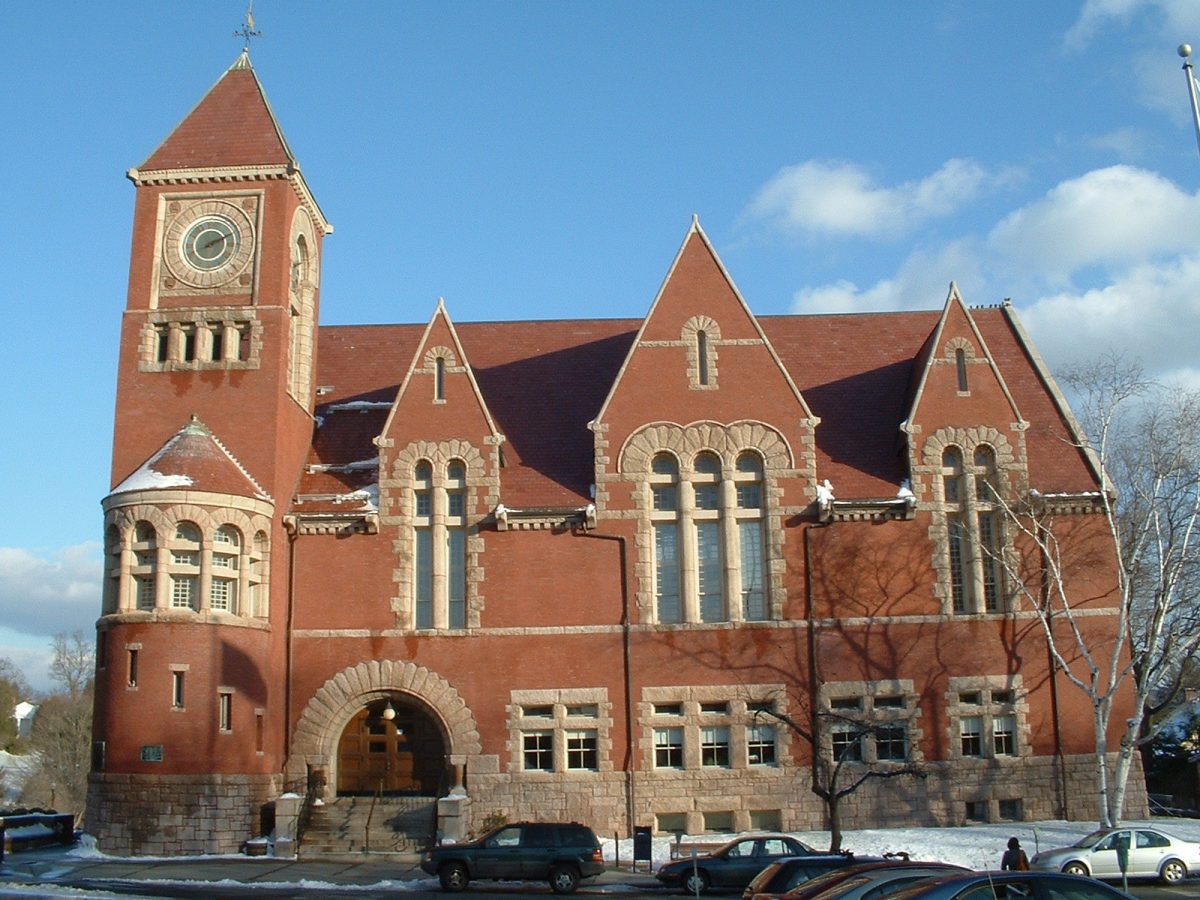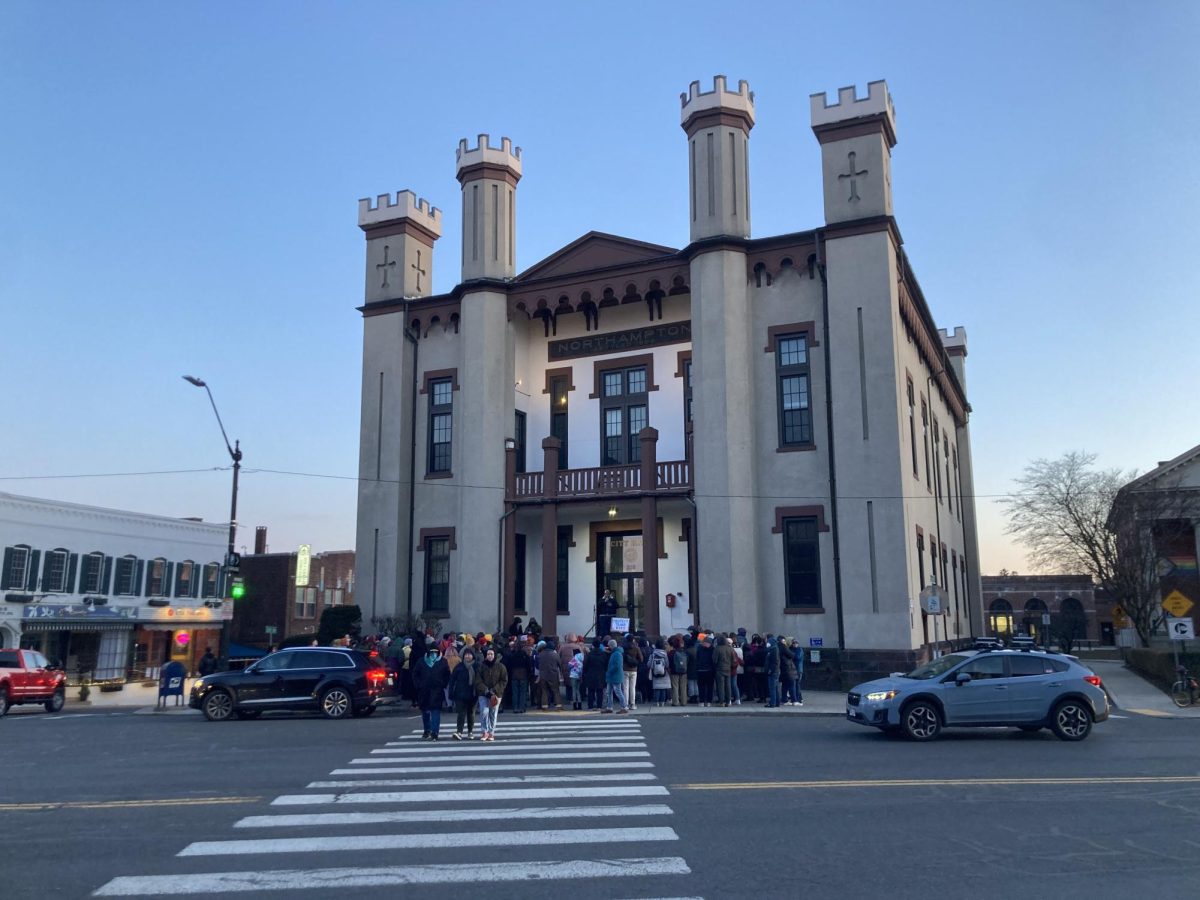
When the University of Massachusetts campus emptied itself for the summer, recent graduate Tripper O’Mara stayed to play in the dirt.
Along with a handful of other workers, O’Mara spent his summer on campus breaking up soil come rain or shine as part of the UMass Permaculture Initiative.
“The only time we run away is when there’s lightning,” O’Mara joked.
O’Mara, an English major, joined the Initiative last September as a media and marketing intern. From that point on, he spread his roots within the Initiative, landing him a paid summer job as a garden leader.
“They knew I was going to be in the area and they needed more staff to maintain it,” he said on how he got the job. “I’ve not only been able to contribute in a way specific to my major, but I’ve branched out more than I could have by not joining.”
Summer is the busiest time in the gardens because it is when the crops need the most care. It also coincides with the time there are the fewest number of people on campus.
The downsized population prompted the creation of five paid summer positions. Workers are paid on a sliding scale.
Five days a week, from 8 a.m. to 12 p.m., O’Mara and four other garden leaders tended the gardens at the Franklin and Berkshire Dining Commons.
“Each site is totally different,” O’Mara said of the two gardens, emphasizing that the biggest difference between the two is soil quality.
The day begins walking through the garden to observe any changes to it, such as plant damage or pest problems. If there is a problem, O’Mara and the other garden leaders experiment to find a solution.
“A lot of what we do is experimenting and seeing what works,” O’Mara said.
For example, aphids, a species of destructive plant lice, took a little too much of a liking to some of the crops in the permaculture garden at Franklin this summer.
But with a little experimentation, the garden leaders discovered nasturtiums, a plant species known to attract aphid infestations away from crops, did the trick to keep the aphids at bay.
Another experiment that has seen positive results has been the planting of basil among the tomato plants at the Franklin garden.
“They help nurture one another,” O’Mara said, adding that the basil plant, rich in nitrogen and aesthetically pleasing, helps bring nutrients up to the tomato plants.
Work on side projects is also a daily activity with O’Mara and his fellow garden leaders. In mid-August, the group set out on top of the 100-square-foot shed at the Franklin garden to build their own water catchment system. One inch of rain can provide 62 gallons of extra water to use for washing tools and harvested food, O’Mara said.
“There have been a lot of experiments. I’ve been able to make my own responsibilities as to what needs to be done and what needs to be harvested,” he said of his role as a garden leader.
Crops are harvested as needed and rotated to protect the soil. Over 50 pounds of lettuce and bok choi, known as Chinese Cabbage, were harvested this summer, along with onions grown in a wintered tunnel. Plants harvested in either garden are “need- based” and go to where the need on campus is greatest, according to O’Mara.
“The hardest thing is making sure we keep up with everything. There are so many things that can just get away from us,” O’Mara said.
During New Students Orientation, harvested food from the permaculture gardens went to the Worcester Dining Commons. Even the University Club saw campus crops in the upscale dishes served there, he said.
In addition to daily activities such as weeding and watering, O’Mara said side projects and informational tours were just part of the job.
“We’ve done a lot of tours. It’s been really fun,” O’Mara said. “I’ve enjoyed the ability to educate and give tours.”
Tours and weekly presentations were given to incoming students at their NSOs this summer, which O’Mara thinks helped to help spark interest among new students, saying “There’s been a lot of interest and attention. It’s been attracting more positive attention for the University.”
Currently, there are no paid positions available, but people are still invited to come work in the garden.
For more information on workdays and upcoming events, visit umasspermaculture.com and look at the Calendar or “Get Involved!” page.
Chelsie Field can be reached at [email protected].












